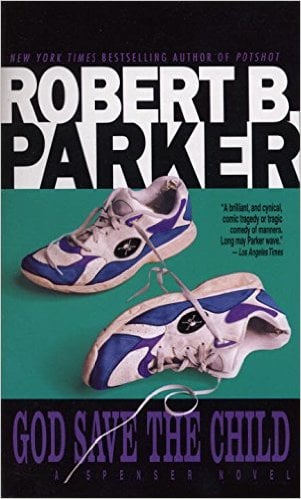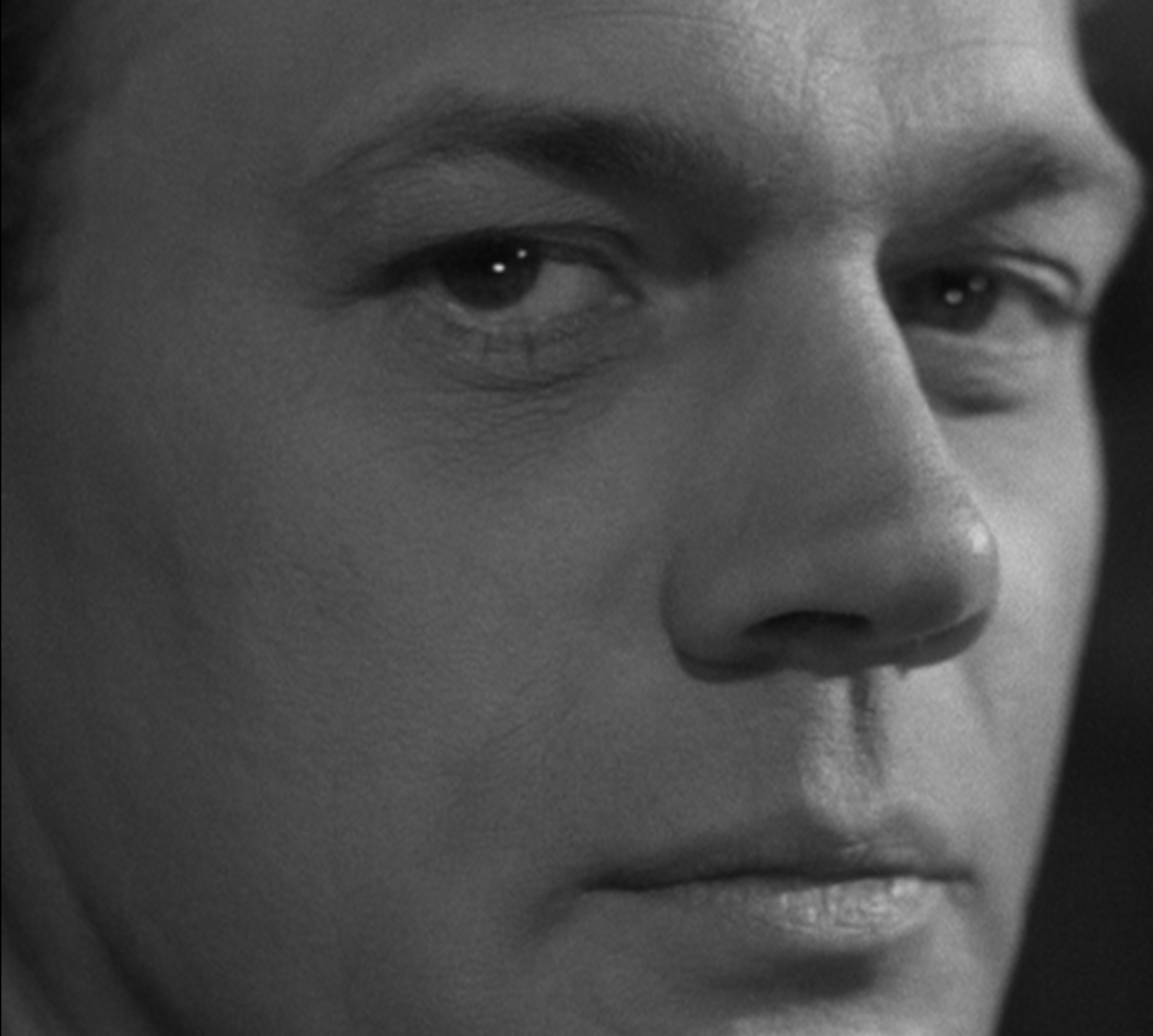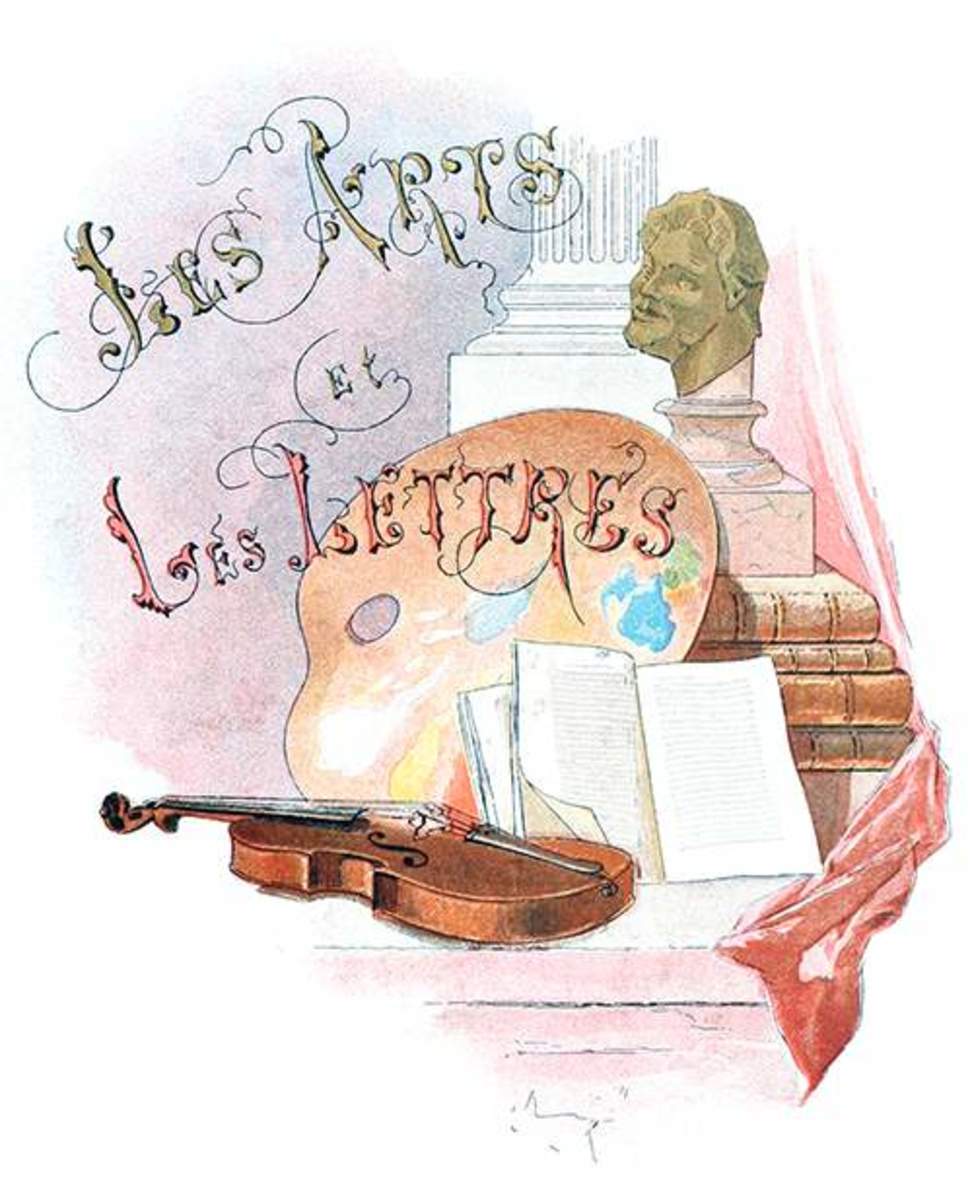2 Detective Novels

Brand new vs. Classic
The idea here: compare two interesting, readable, enjoyable murder mysteries, one by a brand spanking new author (Alex Winter), the other by one of the venerable deans of crime fiction (Robert B. Parker).
Here's the kicker: The book by the better known Parker is a book from when he was just starting out, like Winter is now.
The book by Winter is: Death Is in the Details. Winter's private-eye is Marnie Wallace.
The book by Parker is: God Save the Child. Parker's private-eye is Spenser (just Spenser).
Both are available as ebooks, Winter's only as an ebook, so far. A Kindle will do, but you can read ebooks without one; just download the Kindle app for your laptop and away you go.

Death Is in the Details
One of the great things about Marnie is her improbability -- a sort of private-eye by accident. Here's her prior experience: "she had changed college majors from anthropology to business to journalism . . . had worked on Capitol Hill, in hotel management, as a realtor, a freelance reporter, and an assortment of other jobs." A real private-eye, Charlie Delloso, hired her six months ago as a research assistant, but he has suddenly retired to Florida to take care of his mother. She's cleaning out his office. She's just broken up with her boyfriend. She's facing impoverishment.
When a call comes in from the aunt of a jogger killed by a hit-and-run driver in Georgetown. Marnie takes the case, pretending to be a private-eye. Her method is to imagine what Charile would do. He's a sort of gumshoe angel watching over her shoulder. Actually, he is much more than that because he has a network of specialists he used to call on for help, and Marnie makes full use of the network. (Each person in the network is a trip in him or her self).
But just as Marnie is starting to get into the jogger case, something happens. She is handed a second case, or rather Charlie is -- but Charlie is away. This one is handed over by the lawyer for a fancy prep school. Seems the head of school has gone missing. So has $1.3 million. So has his secretary. And that's just the beginning -- the whole investigation has to be very hush hush. Moreover, for some reason, the school's lawyer who hands Marnie the case is only interested in finding the missing money. Now isn't that odd?
Plot
"In the last month you've gone from being a simple unemployed researcher to a one-woman conspiracy magnet"-- that's how one of Charlie's friends, humorous (of the biting kind) Julia, whom Marnie has co-opted into helping, describes our hero. And it is a pretty accurate description.
The plot deepens and deepens. After that it thickens and thickens. You want plot? There's plot to spare here.
Since this is the nation's capital, foreign intrigue is a continuing possibility -- "threat" would be a better word. The detritus, for example, of the fall of the Shah of Iran. Don't rule out domestic terrorism, either. Marnie knows she is really into something when she comes home one night and finds her apartment ransacked and her dog unconscious.
Marnie moves in with her socialite godmother, Wilhemina, one of the many interesting characters in the book. Willy emphasizes every other word, don't you know. Marnie also acquires a team of helpers from Charlie's network, not only Julia, but Yo-Yo a safecracker from Chinatown and his nephew, the cool Jo Lee (whom Wilemina keeps referring to as Zholie). Jo Lee plays a major part in the novel.
Without giving anything essential away, let's just say that Marnie's pursuit of the missing money takes her to the woods in West Virginia, where she finds some interesting people. Her dogged pursuit of this is a main part of the novel.
Likewise, her pursuit of the Georgetown jogger case takes her to the wilds of the DC property records office and the DC court records department, as well as to the wilds of Suitland, Maryland. But it is all very interesting and all very amusingly told. Then there's the startup company she's pretending to be interested in investing in -- as if she had any money! This leads her into contact with an unsavory group of individuals, some of whom live in a house along exclusive Foxhall Road in DC, a house so large that it is referred to as "the Dallas Palace." Marnie leads her team into the DP late one night from a costume party next door. She comes to the party dressed as a bear. Jo Lee is a pirate. Julia is the Grim Reaper. This is one of the key scenes in the mystery. Tense and amusing at the same time.
Analysis Winter
Julia, mainstay of Charlie's network, is one of the funniest, certainly the wittiest, people in the novel. Here's a piece of dialogue between Julia and Marnie. This is just after Charlie had called Julia and said he would stop off in DC on his way back from promoting his book on the West Coast.. He had asked to stay with Julia.
"Marnie smiled at the big women's girlish delight. Do I hear wedding bells?
Not if he keeps calling me at dawn! Anyway, I haven't met his mother yet. Italian women can be overbearing.
You can take care of yourself, Julia. Besides, you two don't have to live with her, do you?
Not yet, anyway. But we're not talking industrial-strength togetherness so far."
The humor is like a locomotive pulling the reader through the convolutions of the double plot. Another appealing aspect to the book is the precarious position Marnie finds herself in working for two clients who think they have really hired Charlie rather than her. The whole house of cards could collapse at any moment. But somehow she keeps the cards standing.
The cast of characters is large, one wants to say -- immense. One wants to repeat what was always in the trailers for 50's movies in CinemaScope: -- a cast of thousands. But they are all very interesting and all very well drawn by Winter. Jo Lee, for example, is a Buddhist martial arts expert who exerts a calming influence on the harried Marnie. The book is a third again as long as Parker's but it holds the reader's interest. It keeps you thinking.

The author - Alex Winter
Not much is known about Winter. From the website for the book we can deduce the following
- background: career in-house writer and video director/producer for advertising firms, publishers and government agencies.
- experience in international politics, including experience working in Europe and in Asia
- lives now, apparently, on the California coast, "where Winter enjoys the perspective across the ocean and across the continent."
- this one is the author's first novel.
We don't even know Winter's gender. It's a bit of a mystery.
Buy the books

God Save the Child
There really can be no better way to illustrate the difference between Parker's book and Winter's than to quote something from the second page. Spenser, Parker's gumshoe, is observing the couple sitting on the other side of his desk who are asking him to find their boy. He describes the wife's clothing in detail, then, after remarking it's clear she buys hubby's clothes for him, the husband's:
He had on baggy cuffed white flares, a solid scarlet shirt with long collar points, a wide pink tie, and a red-and-white-plaid seersucker jacket with wide lapels and the waist nipped. A prefolded handkerchief in his breast pocket matched the tie. He had on black and white saddle shoes and looked as happy as a hound in a doggie sweater.
There are many other time-telling references in this increasingly venerable novel, to Bobby Riggs and Jackie Coogan, for instance. There are even references to things that were old by the seventies, to Dorothy Collins, Snooky Lanson, Marlin Perkins. Snooky Lanson! Oh, and Amstel beer was considered cool.
There were, of course, no ebooks back in the dark ages, when Amstel beer was considered cool.
Plot
Although Spenser is based in Boston, this book takes place mainly in Smithfield, a leafy (fictional) suburb north of Boston. Another time-telling item is that when Spenser drives over a bridge to get to Smithfield, he hands the toll collector a quarter -- and gets back ten cents in change. Spenser finds the parents at home, drinking G-and-T's with the Police Chief (who's drinking beer), Trask, not anxious to have Spenser on the case. Spenser must have a PhD in English Literature, like Parker, because he sometimes corrects people's English, for example the Assistant Principal at the boy's school ("whether or not" -- no need for the "or not" since "whether" implies that). Needless to say, this does not charm the Assistant Principal, but no matter because it all leads on to a visit with the guidance counselor, Susan Silverman. Susan is a very well done character in the book and becomes Spenser's love interest.
There is some thought that Kevin may just have run away, but then a ransom note arrives, an odd one. The state police are called in, and they and Spenser stakeout the delivery area, but that does not go well. Spenser calls on Susan at school: The receptionist in the guidance office was in a brown knit today and displaying a lot of cleavage. I admired it. She wasn't Susan Silverman, but she wasn't Lassie either, and there was little to be gained in elitist thinking.
Spenser describes everyone's clothes in great detail. Private-eyes need to be observant, though it is something he can't seem to turn off for a moment. The only thing Susan can tell him is that Kevin had trouble with his parents and may have been hanging out with some kids who live in a commune, a "sort of" commune. Our hero is driven there by Susan, but this does not go well because the head guy, a body-builder, calls Susan by a pejorative term for a woman of loose morals.
A threat to kill Kevin's mother is made on the phone. Spenser moves in as a bodyguard. Returning home with his charge one afternoon, after a shopping expedition for clothes for the evening's party, he discovers a body in the living room. The party must go on, however, and Spenser puts it down as just one more thing he needs to investigate. The party is a drunken affair, a sort of dance on the dead man's grave, but Spenser learns a great deal.
Later, he also finds that the weight-lifter is much more than he seems, and the commune is much more complicated than it first appears.
Let's leave it at that, no need for a spoiler alert

Analysis Parker
As with Winter's book, much of the appeal here is in the humor. Spenser picks up a body-bulding magazine. It has an article about the muscle-bound man in the "commune." A headline says he Combines Weight Lifting and Yoga. "I read the story. It said the same thing in supermasculine prose that made me want to run out and uproot a tree." Spenser is at one point caught between a crying kid and the cying kid's mother, who has just begun to wail. "Jesus. Maybe I should get out of this line of work. Get into something simple and clean. Maybe a used-care salesman. Politics. Loan sharking."
The period flavor adds a lot also. In a way this is like wine because the older this novel gets, the more that flavor appeals. Speaking of wine, the amount of alcohol consumed in the novel is prodigious. Another time-teller is that no one seems to give a boo about all this drinking -- and driving home. Kevin's mother is a particularly heavy drinker, but then she is an artiste, one in a small town, but an artiste nonetheless. She is rehearsing to play Desdemona in a local production of Otello. Spenser's, or rather Parker's, PhD shows at one point when he describes the drink in her hand as a "wine-dark" scotch.
The plot is good, too. It keeps us guessing. It is a bit bizarre, but plausible, too.
The main characters are interesting and well characterized, including Spenser and Susan. The people who enter for a line or two, or a paragraph, are well-drawn. The dialogue is suitably snappy. The book is an enjoyable read.
The author - Robert B. Parker
Robert B. Parker was a student of crime fiction and at the same time one of its leading practitioners for many years. Literally a student -- his PhD dissertation dealt with fictional private-eyes created by Dashiell Hammett, Raymond Chandler, and Ross Macdonald and was titled "The Violent Hero, Wilderness Heritage and Urban Reality."
Parker died in the saddle. So to speak. In fact, at his desk in his home in Cambridge, MA, working on a new novel. The year was 2010. He had published over 60 novels. Few, if any, other holders of a PhD in English Literature can claim that distinction. Since he had a PhD, we really should call him Dr. Parker.
Like Alex Winter's debut novel, Parker's fiction is grounded in a particular city and gains much from that. In Winter's case, the city is Washington, DC; in Parker's it is Boston, MA. This particular novel of Parker's, however, takes place mainly in a suburb, so urban Boston makes but a cameo appearance.
Buy the book
Parting facts
It is difficult to imagine the success of a third mystery writer, to whom the two featured here aspire. I am speaking of the peerless Agatha Christie. It is estimated that she has sold 2 billion books, coming second only to Shakespeare and the Bible. Her books have been translated into over one hundred languages. Films of her work abound. She's amazing.










